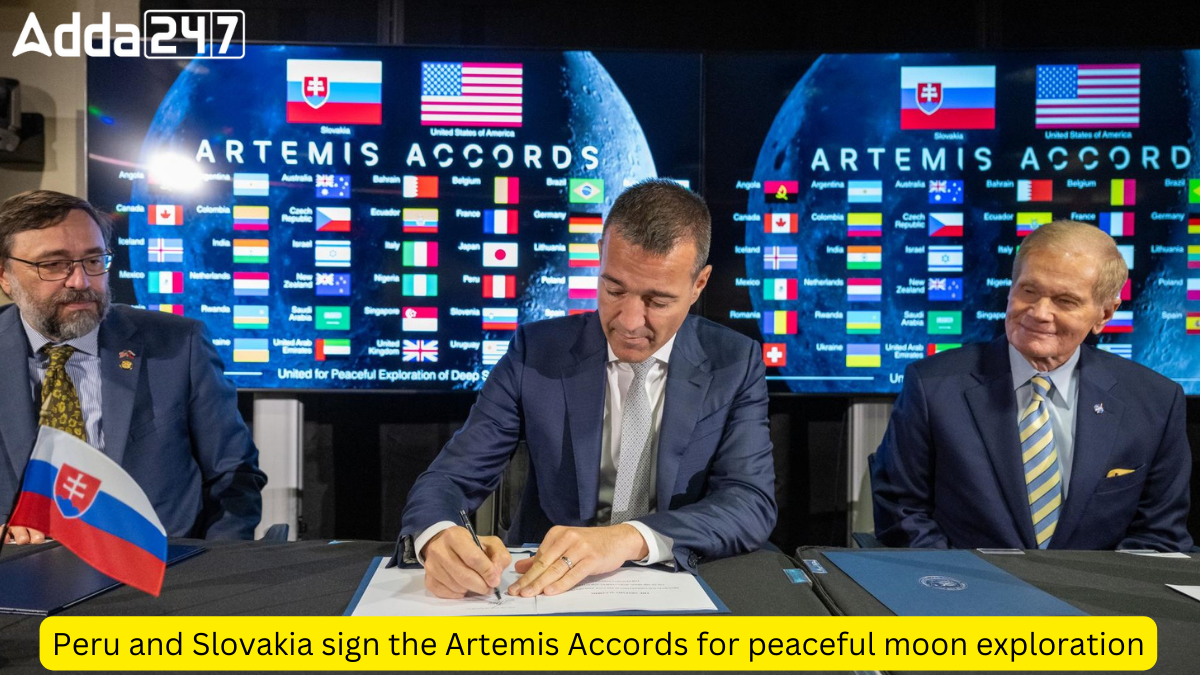Peru and Slovakia on May 30, signed NASA’s Artemis Accords, making them the latest in a rapid number of countries to join the U.S.-led agreement on the safe exploration of space. Both countries signed the accords at NASA’s Washington headquarters, but in separate ceremonies with Peru the first to add its name to the accords on May 30 followed by Slovakia. Peru became 41st and Slovakia 42nd countries to do so.
About Artemis accord
Artemis accord is launched by NASA and seven other nations in 2020, the Artemis Accords are a nonbinding political commitment to a set of principles guiding the conduct of civil space exploration. The namesake of the accords is the Artemis Program, which NASA is leading along with industry and international partners to create a sustainable human presence on the Moon and eventually on Mars.
- The accords do not equate to participation in the NASA-led program but are instead part of U.S.-led diplomatic efforts to promote the peaceful use of space in this new era of space exploration. They are largely rooted in the principles established in the core space treaties but seek to shape the activities of a more diverse set of actors conducting space exploration in a world that is very different from the one that existed when such principles were first laid down.
Why do the Accords matter
Space governance forums like the United Nations, where nations debate the rules governing the use of space, are often the setting of familiar geopolitical battles. For the United States, for instance, building a global coalition around democratic principles and values is seen as key to protecting critical civil, military, and commercial interests in space. As noted in the Strategic Framework for Space Diplomacy, the United States “will compete where necessary against countries that seek to impose a different view of outer space governance.”
- While some of these tensions are as old as the very first satellite, the landscape is much different. Today’s space governance discussions involve a diversity of actors and countries at all stages of space development. For some, the accords speak to today’s priorities, such as Luxembourg’s, which has prioritized the mining and use of space resources endorsed in the accords. Other countries that have signed on, like Ecuador and Iceland, have very nascent space programs. For those with limited space activity today, adopting the accords seeks to spur early efforts and to signal a commitment to helping shape the rules of the road that will impact future activities.




 Made in India: Nadda Launches Indigenous...
Made in India: Nadda Launches Indigenous...
 Reliance Announces ₹10 Trillion AI Inves...
Reliance Announces ₹10 Trillion AI Inves...
 GalaxEye’s AI-Powered OptoSAR Satellite ...
GalaxEye’s AI-Powered OptoSAR Satellite ...








